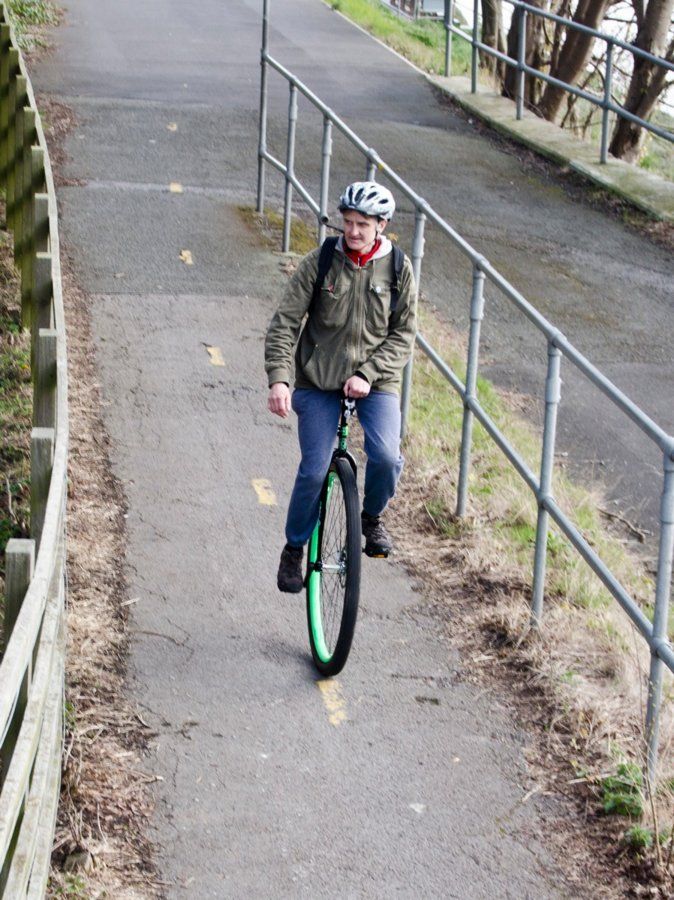ericmark
Senior Member
- Location
- Llanfair Caereinion, Mid Wales.
I bought my wife a bike around £70 Asda I think, it was useless, my mother bought me a bike around £175 suspension front and rear, disc brakes, heavy, but which with what I carry, not really a problem, but the gears at rear OK 1 and 2 plus 5 and 6, but centre two always seem to be jumping up and down, was given a bike this time a road bike original cost around £850 the push buttons up and down for gears makes it some much easier, and it is also lighter, but not disc brakes, and no suspension, then wife got new bike £1,600 with motor built into pedal crank, disc brakes, suspension on front 9 speed with easy change and 4 options of motor assist.
The electric bike is by far the best, however remove price of motor and battery it is same as the road bike but with suspension and disc brakes. And even with motor switched off it is about the same effort to ride it.
So now time for me to get an electric bike, but how far to go up the scale?
Reason for bike is exercise and to get to places to take pictures, normally have ruck sack or panniers to carry gear, so even with a light bike, it's not that light once I include camera, tripod, and repair kit, the motor is to get up final hill home, on the cut tow path it's level so weight not a problem and motor not required.
So had one nasty going down Symonds Yat Rock when I realised my disc brakes needed adjustment and no amount of effort on brakes was going to stop me. Slowed me down, but could not stop, so clearly hydraulic would be better, that's if they will work with a disc which is blue hot? But other than that, and will not let it get that far out of adjustment again, the £175 mountain bike has been fine, would like better gear change, but see it as rock bottom price wise, does have advantage not too appealing to others so less problem with theft.
So when not needing to get to work on time or win any race, what is required for a good bike? suspension means less shock to wheels, and me of course, so want that if possible, it also means less likely to be thrown off with a pot hole, not sure about disc brakes, yes work well, but as it if needed is some thing else, good changing of gears, but does rear suspension come at the cost of good gears,? As to motor what it on crank as in wheel hard to start.
But as we go to more expensive bikes never ridden them, so a xyz gear change may really improve the bike, but since never had one I would not know. So what helps up hills and makes bike reasonable to ride, clearly for no effort 1000 watt motor and twist grip, but whole idea is to get some exercise so 250 watt is ample when on the crank.
So thoughts please.
The electric bike is by far the best, however remove price of motor and battery it is same as the road bike but with suspension and disc brakes. And even with motor switched off it is about the same effort to ride it.
So now time for me to get an electric bike, but how far to go up the scale?
Reason for bike is exercise and to get to places to take pictures, normally have ruck sack or panniers to carry gear, so even with a light bike, it's not that light once I include camera, tripod, and repair kit, the motor is to get up final hill home, on the cut tow path it's level so weight not a problem and motor not required.
So had one nasty going down Symonds Yat Rock when I realised my disc brakes needed adjustment and no amount of effort on brakes was going to stop me. Slowed me down, but could not stop, so clearly hydraulic would be better, that's if they will work with a disc which is blue hot? But other than that, and will not let it get that far out of adjustment again, the £175 mountain bike has been fine, would like better gear change, but see it as rock bottom price wise, does have advantage not too appealing to others so less problem with theft.
So when not needing to get to work on time or win any race, what is required for a good bike? suspension means less shock to wheels, and me of course, so want that if possible, it also means less likely to be thrown off with a pot hole, not sure about disc brakes, yes work well, but as it if needed is some thing else, good changing of gears, but does rear suspension come at the cost of good gears,? As to motor what it on crank as in wheel hard to start.
But as we go to more expensive bikes never ridden them, so a xyz gear change may really improve the bike, but since never had one I would not know. So what helps up hills and makes bike reasonable to ride, clearly for no effort 1000 watt motor and twist grip, but whole idea is to get some exercise so 250 watt is ample when on the crank.
So thoughts please.

